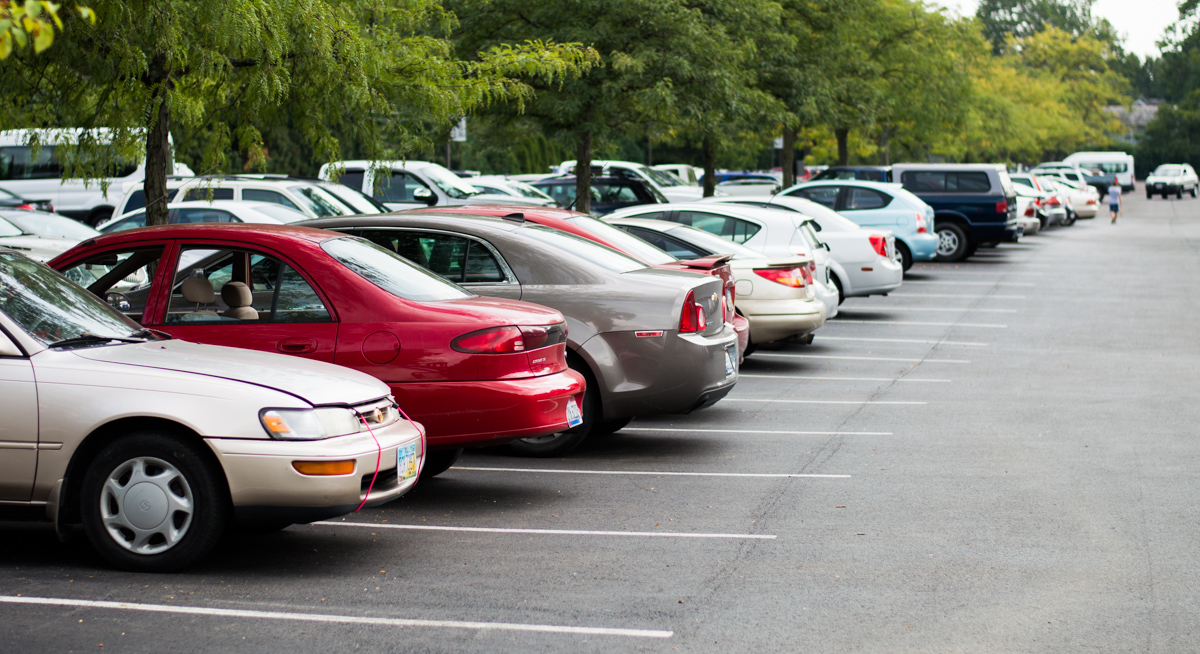Most students typically wince when they hear the word “parking.”
In response to rising student frustrations, Student Government (SG) has made parking one of its top priorities, said SG President Jackie Niese. This year SG members created a sub-committee dedicated solely to the issue of parking. The sub-committee plans to send out surveys this coming week in hopes that it can use the results to convince administration and Public Safety that the problem of student parking needs to be addressed.
Sub-committee members will research what lots are the most heavily populated, at what times of day these lots typically fill up, and how other small schools deal with parking.
Ashley Sarko, a sophomore with an off-campus job, said she finds searching for a spot frustrating.
“It’s hard when students work until 1 or 2 in the morning, and [the school] makes it a really big problem for [students] to get a parking pass just to be able to go to work,” Sarko said.
Students such as Sarko with late work hours must park on campus because the parking shuttle does not make runs to the O Lot that late at night. However, students must have their managers write a letter explaining where and when they work to get a pass.
Sarko said even after she brought a letter to Public Safety, she was not promised a pass.
Along with the number of students who work off campus, a large number of commuters also struggle finding a spot every day.
“They definitely give out too many S Lot passes to people that do not commute,” commuter Cierra Roberts said. “There are days I am late to class because I can’t find parking. Every Monday or Wednesday that I have an 11:00 a.m. class, if I am not here before 10:30 a.m, I have to park at the [Capital] Commons.”
Public Safety said it is working to address student frustrations. This year, the shuttle bus makes two additional stops. Along with shuttles from the O Lot to Schaaf, buses also pickup at the Capital University Apartments and the Capital Commons.
According to Capital University Police Chief Frank Fernandez, parking may seem more problematic than usual due to construction of the new Convergent Media Center, which eliminated around 40 parking spaces.
Although Capital rented an area of the Trinity Lutheran Seminary lot for faculty use, some faculty members still park in spots typically reserved for students.
Fernandez thinks students can help solve the parking issue by bringing a car only if necessary. A lot of students tend to let their cars sit and use them only once or twice a semester, he said.
“Enforcement is the only way we can keep those extra parking spaces available for people who commute,” Fernandez said.
While many students see Public Safety as a force that ignores instead of helps the problem, Fernandez said that “people have to understand that we have to enforce parking regulation in order to avoid more problems.” He promises that ticketing is not done for revenue but rather for control of the parking spaces.
“If you are parked on campus without a pass, you are taking the space of someone who paid $110,” Fernandez said.
Street parking also doesn’t solve the parking issue.
While there are some public areas where parking is allowed at all times, the majority of Bexley parking options comes with stipulations.
Certain streets in Bexley that were previously available to everyone now only allow parking to residents living on those streets.
When asked about possible parking solutions, Niese said that it will not be what most students expect.
“[The solution] is not going to be a new parking garage—that is just not going to happen. And it’s not going to be a new parking lot,” Niese said. She explained how both options are far too expensive. SG’s main goal is to establish a new form of communication. This will include better ways to inform students of parking rules and options.
“It is not going to be an overnight fix,” Niese said.

